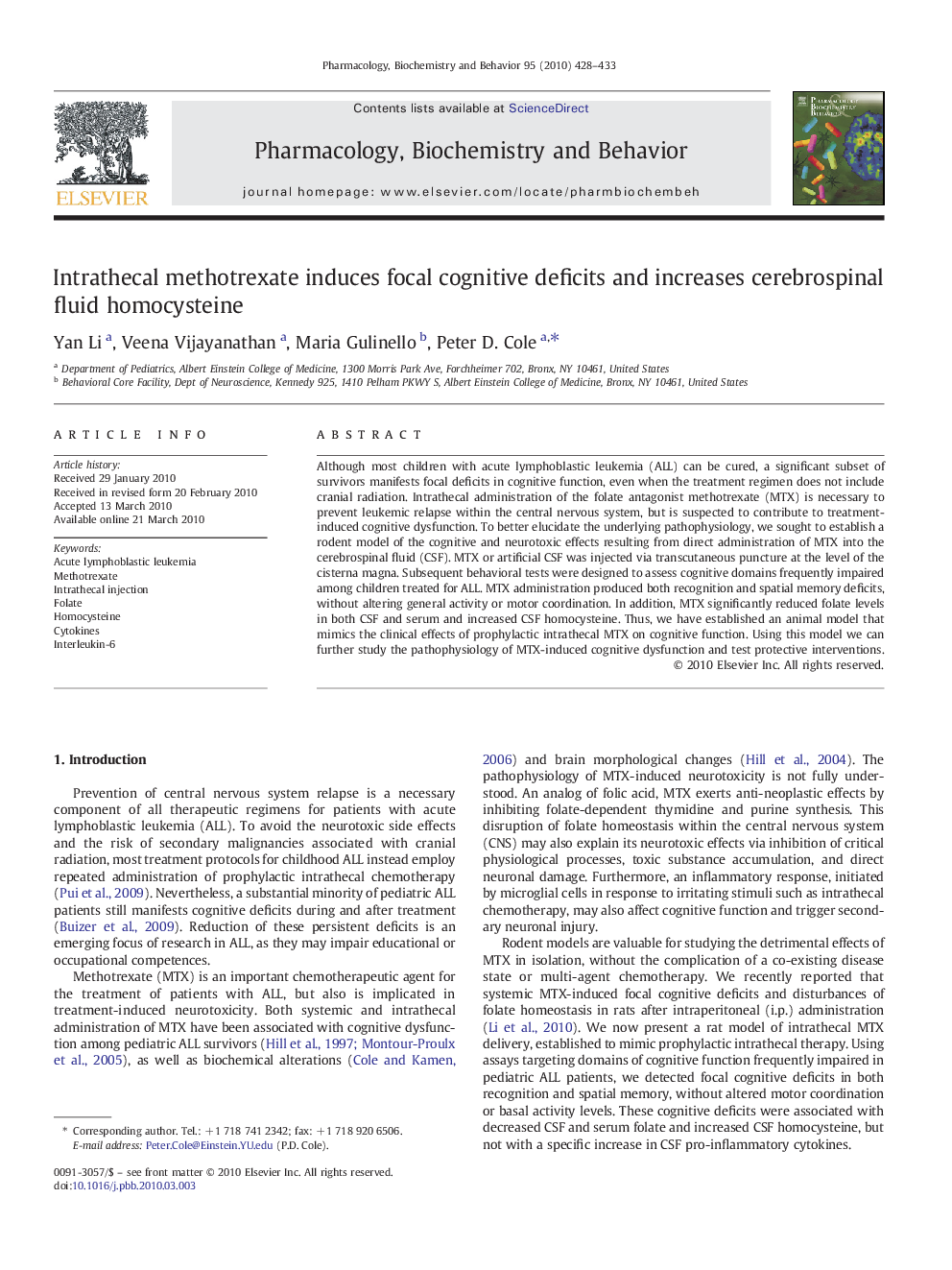| Article ID | Journal | Published Year | Pages | File Type |
|---|---|---|---|---|
| 2013130 | Pharmacology Biochemistry and Behavior | 2010 | 6 Pages |
Although most children with acute lymphoblastic leukemia (ALL) can be cured, a significant subset of survivors manifests focal deficits in cognitive function, even when the treatment regimen does not include cranial radiation. Intrathecal administration of the folate antagonist methotrexate (MTX) is necessary to prevent leukemic relapse within the central nervous system, but is suspected to contribute to treatment-induced cognitive dysfunction. To better elucidate the underlying pathophysiology, we sought to establish a rodent model of the cognitive and neurotoxic effects resulting from direct administration of MTX into the cerebrospinal fluid (CSF). MTX or artificial CSF was injected via transcutaneous puncture at the level of the cisterna magna. Subsequent behavioral tests were designed to assess cognitive domains frequently impaired among children treated for ALL. MTX administration produced both recognition and spatial memory deficits, without altering general activity or motor coordination. In addition, MTX significantly reduced folate levels in both CSF and serum and increased CSF homocysteine. Thus, we have established an animal model that mimics the clinical effects of prophylactic intrathecal MTX on cognitive function. Using this model we can further study the pathophysiology of MTX-induced cognitive dysfunction and test protective interventions.
